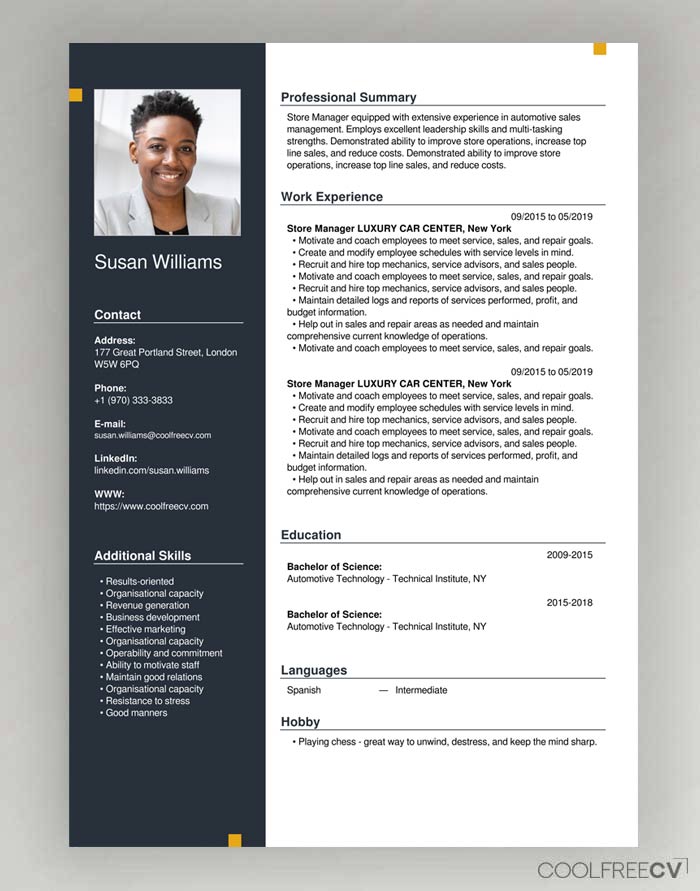

Each hobby should reflect skills that could come in handy on the job. The best hobbies in a resume are those that shine a light on your best traits while staying honest and relevant. Tailor your resume to the position, highlighting your language skills more or less depending on how much language lends to the role and is mentioned in the job posting. Whether you’re applying to be a barista or a senior marketing manager, a second language can help you communicate with customers, clients, and foreign offices. If your language proficiency ranges from professionally conversational to native (essentially, intermediate to advanced), it has a place on your resume. So here’s two important pieces of advice: prioritize what you include and analyze the job description! Use the same words to describe your skills that the employer uses in the literature about the role. Moreover, there are certain hard skills (and sometimes - even soft skills) that are absolutely necessary for a position. If something is missing from a hiring manager's wish list, you can be sure they will quiz you on your suitability during an interview. This part is more pragmatic than the Summary, because recruiters and automated systems will be appraising your skills based on a certain checklist. This is where you pass your first “competency test”.
#Best cv maker website professional
The skills section is your professional feature list, your superpowers, your abilities. Academic CVs will likely contain a long list of academic publications. You may even want to include scientific or similar publications in your resume for some of these (in your Education section or in a separate category). Professions like lawyers, doctors and hard-sciences positions (chemist, biologist etc.) will have a very strong emphasis on formal education. Like in many other situations, there is no “one size fits all” approach to education sections. However, no good resume is complete without some sort of education section, and many employers DO strongly value a formal degree. Many developers are self-taught to a certain extent. We emphasize the fact that formal education isn’t a make-it-or-break-it factor. The education section varies in importance depending on your profession and industry. EducationĪ varied education on your resume sums up the value that your learnings and background will bring to job. This also keeps your resume short, clean and concise. Tailor your job mentions so that you impress your future employer with the most relevant work experiences for this specific job ad. It’s not necessary to include your entire employment history.

This is not only the place where you list your most impressive past employment, but you may also elaborate on each position by giving important facts, achievements and figures that describe you as a great professional. If you’ve chosen the Reverse Chronological format (and in 9 out of 10 professions - you probably should), then this section is the backbone of your effective resume. Use bullet points to note your achievements, if possible - use numbers/facts (Achieved X, measured by Y, by doing Z). Show your relevant experience (last 10 years). You can also include an objective as a part of the summary but it would be rare to call this section "objective." The hiring manager understands that your objective is to get the job. The Objective can have its role in certain circumstances (for example, when you lack work experience or wish to make a career change). This lets the achievements and facts stand out. Avoid lengthy, grammatically complicated sentences. Use action verbs and strong descriptive terms. The Summary should be energetically written to capture attention. It demonstrates your determination, positive outlook and brings some emotion to dry facts. The Career Objective is your biggest chance to add some color, life and personality to your resume. The personal details section is located right at the top of your CV and it is the first thing that recruiters will see when they review your CV. It should also contain your personal details such as name and contact details in the personal details section. A good CV contains should include a lot of information about you, including your education, employment and qualifications.


 0 kommentar(er)
0 kommentar(er)
